Peter, New Zealand (72)
Time on the ocean can certainly be magical and the last few days have been a sea lovers dream. The R Heritage Too was was berthed in the bustling port of Horta. It is a beautiful harbor, full of colorful painting left by sailors with the majestic volcano Pico patiently standing watch watching over the channel between the islands of Pico and Faial. If you want a busy port, full of nightlife and pubs, Horta is the place. It has a very European feel, but doesn’t seem to be very representative of the Azores. People seem to always be in a hurry, prices are relatively high and I heard more horns honk in the week we spent there then during the rest of my year of experiencing the Azores. There are still beautiful natural wonders on Faial, the capelinos volcano, the massive caldera in the center of the island and the black sand beach in Praia Norte and all worth seeing, but it seems more like a place for a visit and not someplace to experience the culture and people on these idyllic islands.
The harbor was full and a storm was approaching so the harbor master asked us to move. We decided to use fair weather and visit the last of the 9 azores islands, Santa Maria. Two whale watching boats left around the same time and we caught up to them in an area where all the creatures of the sea seem to have risen to the surface. At least three species of dolphins, pilot whales and tuna were feeding, causing the sea around us to boil. There must have been a thousand dolphins. I laughed like a child with pleasure when a baby dolphin, not more than 80 centimeters, leapt out of the sea. It was magical and the sheer beauty of nature made me feel some of the greatest joy than I have ever experienced. It was a feeling I can not possibly put into words. Shortly after I hooked a massive fish. A big eye tuna weighing in at over 50 kilos. It took all of Bruce and I’s strength to get it on board. I ate a double big helping of sushi on each watch while under way. Upon arriving to port I distributed what we couldn’t store or eat to the locals and cruisers in port. It fed at least 10 families. Today we went to dive and look for Mobula rays. We had little luck but did see a sea turtle and a whale shark from the surface.
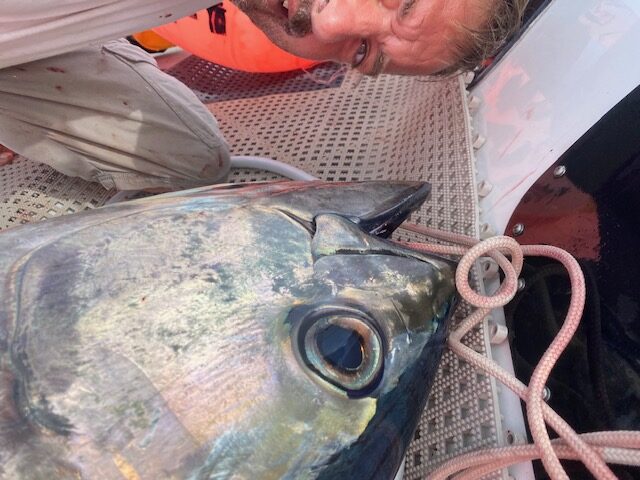
Prior to leaving Horta I had many education conversations with Peter Smith, a seventy something sailor who has logged over 200,000 miles at sea, many of which were at high latitudes. He recently made the Canadian news but sailing the Northwest passage solo during a time when it was closed due to Covid. He claimed his right of free passage, agreed not to stop to minimize risks of impacting indigenous populations and spent nearly 80 days alone at sea. It is always good to learn from people who have so much experience. His beautiful website and pictures of the boat he designed and constructed can be found here Peter Smith and the Kiwi Roa. The boat is certainly one of a kind with ample space to stand and work in the engine room. It is build like a tank, a vessel designed to visit the most remote places in the globe. Peters words follow.
What do you like about living your life at sea?
I am one of the people a people who can’t answer what like about life at sea. The sea seems to have chosen me and I feel my love for the sea is something I was born with. At five I was already mad about the sea. I was brought up around boats in Whangarei, New Zealand. It is one of the places now where sailors around the world gather. In some ways the ocean was an escape from my upbringing.
My farther was in and out of my life, mostly out. The repercussions of excessive alcohol was always a problem in the house. I was in orphanage for a few years. It was a tough upbringing. Sailing was not really in my family. I would use the ocean to get away from my house and the atmosphere. The Knightly family was a big influence. Their father built them a P-class and they fostered my interested. Somebody put me on a cherub and the next thing I knew I was club racing in Whangarei harbor.
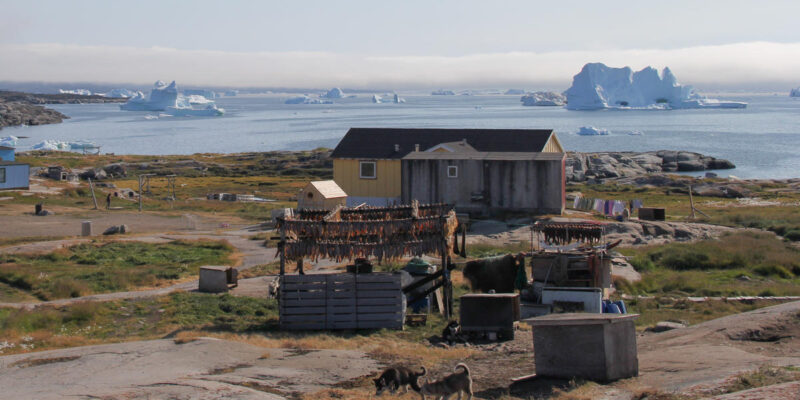
At one point my father reappeared in our lives long enough to started building a small keel yacht but he disappeared again well before it was finished so I picked up the mantle and finished the boat myself during my early high school years. He went back to booze and women. I ended up finishing the boat on my own. My grandmother was very inspirational and she encouraged me to study at home and she provided a quiet place where I could focus. She was a woman ahead of her time and one of the suffragettes who made NZ woman the first in the world to have full, unconditional and equal voting rights with men. I went on to 6 form (university) and I sought out some building qualifications. I got a high rise construction specialization but at 16, I had already started to build my second boat, a 21 footer called the Pied Piper designed by Des Townson. I had nothing and begged borrowed and stole the materials for that boat. I say that now with pride and it was a great boat that was shown in a boat building shown in Auckland. Boats have been a part of my life since.
I have built 12 boats for myself personally over and above my professional boatbuilding career and hundreds for clients through my boat building companies. At 20 I had a friend working for Salthouse Brothers who were building some of the best wooden boat in New Zealand at the time. We formed a 50/50 partnership to build fiberglass boast which we then call Salthouse custom glass boats limited.
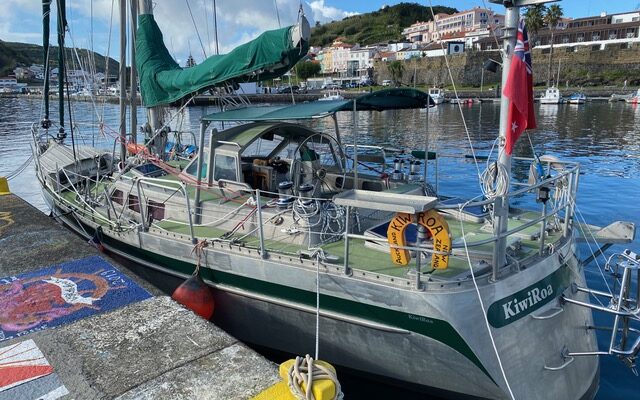
A 32-foot half tonner named “Cavalier” was the first boat we produced. We built a production mold and it was a huge success. The renamed Cavalier Yachts Ltd. was the first to get into building big fiberglass boats in New Zealand. 128 were built in New Zealand and more were built in Japan and Australia. I had 10 men working for me initially, growing to 44 men before the country wide collapse of NZ’s boat building industry in 1975 when a infamous accountant Prime minister, unannounced, brought in a 20 % sales tax on the boating industry . Overnight 44 men were out of a job. The result was I built myself a Cavalier 39 called Apteryx and continued my career overseas, leaving New Zealand in 1978. The culmination of my boat building career is Kiwi Roa, built in Colchester , England , and the boat you are sitting on now.
I love the freedom of the sea and that is is always teaching you. The sea is everything I love. The whole time I was building, I was racing these boats. I can’t ever imagine getting away from the life style and sadly the two woman in my life have left me knowing I cannot turn my back on the sea. They knew me well enough, that I would never stop, while eventually they wanted to put down roots. I’ve worked building boats at many places around the world, but have slowed down as the years accumulate and l am now focused on high latitude sailing. The sailing life is about continuous learning, and sailing at high latitudes has continued to expand my depth of experience and knowledge. It’s provides the challenge I thrive on and gets me up in the morning.
What don’t you like?
If I could build boats like the Kiwi Roa for a living, I would but there is no market for building boats that are strong a very safe. The companies are run by bean counters that are designing boats for vacationers. Boat building like I grew up doing no longer exists on a commercial scale. There has been a changes in boaters priorities. People see boats as social status toys. People buy a fancy looking boat without the sailing background and skills. They don’t even know how to tie a rolling hitch. Its very difficult to build a good quality boat because it is cost prohibitive. Only a very small amount of people can afford it. Weight is cost and modern boat makers keep trying to open up the market by making them cheaper less seaworthy on the open ocean.
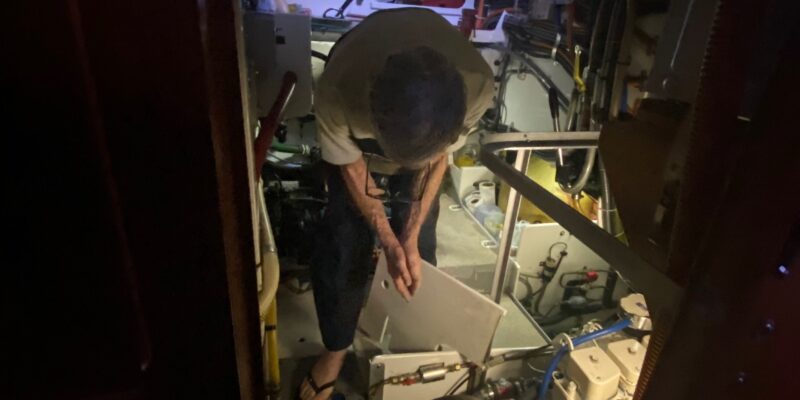
Have you seen the natural world change?
That’s a hard question because you grow with change. It is hard to say when you see it change. While I was in Antarctica I could see red mats of bacteria growing on the ice and green moss. I wasn’t there 40 years ago but I sensed that it shouldn’t be there. You see a lot of plastic on windward beaches in the pacific. I have also encountered lot more seaweed, sometime is becomes too thick to sail through. It almost like sailing into ice. None of that was there 20 to 30 years ago.
As an aside but in parallel with the boating world I designed a new anchor for the pleasure boat market some 15 yrs ago. I did not want to get into business again so licensed the design production and sales to CMP, a Vancouver based Canadian company, while retaining the Intellectual Property and patent rights. The Rocna and Vulcan are the top selling anchor in the serious offshore cruising market today. The anchor has also gained favour in areas such as the Caribbean where warming waters has resulted very heavy sea grass growth. Traditional anchors do not set well in this environment whereas the Rocna with its quick setting ability does not pick up the grass so is still able to bury and set. The same ability is demonstrated in the high latitudes where heavy kelp is a problem. 90 % of the charter yachts in Patagonia and Svalbard are sporting Rocna’s.
Wind patterns are changing and my old pilot charts are no longer accurate. The ideal sailing seasons are shorter and the winds stronger. It is harder to predict the end of hurricane season. When I look at the wind forecasts I think that it always seems to be hurricane season in the northern hemisphere. Out of season hurricanes are becoming a regular events.
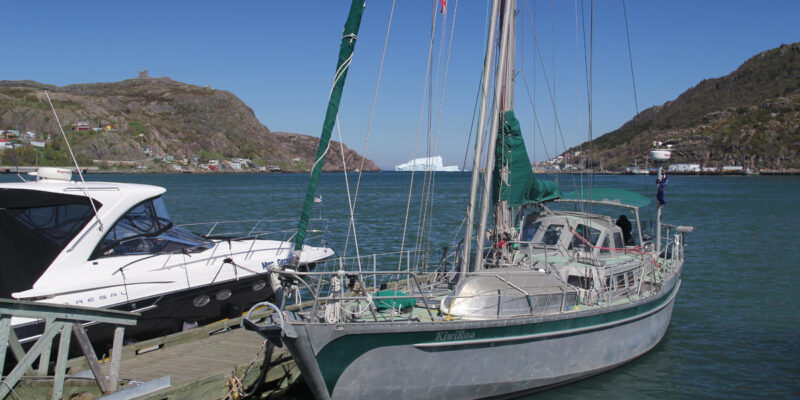
How will this impact you’re the sailing community?
I don’t see the changes in boat design impacting thing that much since many of those people never leave harbor. Despite that there are more people sailing just because there are more boats. These boats get away with long distant sailing by staying near the equator between 30-40 degrees where winds are relatively calm. The introduction of GPS and weather satellites make sailing much safer and mitigates much of the risk associated with changing weather.
I’m old school and it took me a long time to use digital charts. For a long time I only used position, waypoints and paper charts. Somebody gave me a chip one day for the chart plotter I had owned for years and seeing both the position and the map simultaneously was enlightening. I started sailing using sextants and sight tables. In those days it was valuable to have your ocean yacht master.
Can you give me an example of something you are doing to reduce you impact on the planet?
I’ve always been conscience of energy use as a boat building because because on a boat energy is cost. I’ve always been frugal and never accumulated things. I insulated this boat and have 23 hatches to keep it cool. AC is a huge energy draw and one of the great wastes of natural natural resources in the modern world. Desalination is so energy intensive. I think about all the oil desert communities are using to make fresh water from the ocean. It is not sustainable.
I designed this boat to catch my own rain water. Living on a boat being away from shore for so long forces you to conserve energy. Bottled water really pisses me off. In New Zealand people buy French bottled water, which is shipped it to New Zealand on a tanker , and then placed in tiny bottles. What a waste for a country that has water of its own. As long as we live in a world that does that we are fucked and never gonna win.
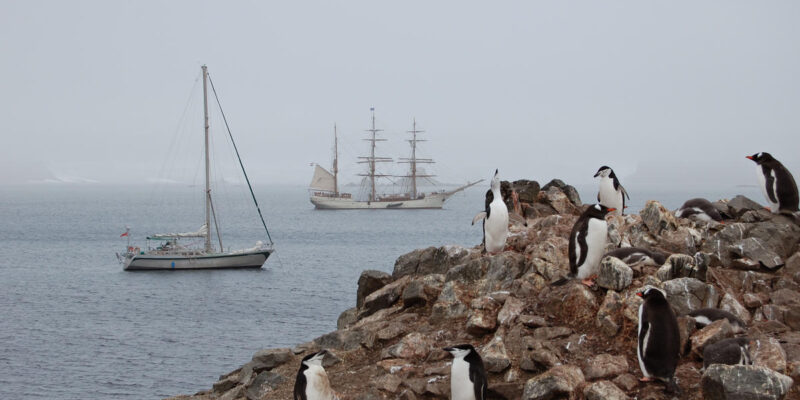
Is there anything you would like to ask or tell me?
We are just another species on this planet where we cant stop our extinction. We will die out and something else will take over. We can only prolong our existence but we are not even trying. Batteries for cars are really heavy on the earths resources so this seems to me like a feel good solution. Cell phones are a huge blight on natures resources. I lived 6 years in Papa New Guinea, hadn’t driven and hadn’t had a phone. When I returned to New Zealand and drove again I was terrified how dangerous cars were. People call me crazy for sailing high latitude but I think to them driving around with a bunch of nutters in the city and think they are nuts too.
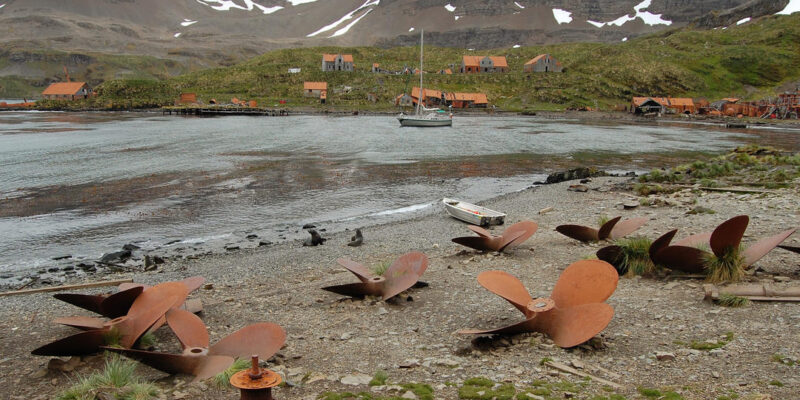
After living in Papa New Guinea for 7 years I moved to rural Colchester in England. I had spent so much time with remote tribes I was so shocked when I went into town and saw there were 7 shoes shops. People have disposable income, work ethic is premium and have been conditioned to spend. Whenever I’m on land I see this and think man is doomed. Being away from TV, advertisements and stores make one very aware of subliminal effects of marketing ploys.
You’ve been one of my most outspoken skeptics about man’s ability to solve the climate crisis. I appreciate this and feel your opinion is closest to correct. Do you have any other comments?
There is hydrocarbons in my sails, and the aluminum in my boat was energy intensive to produce. My footprint even on this boat is way more then somebody living in a mud hut. I am conscious of this and feel lucky to have grown up when I did. There are a lot of positives in the world and I know I see the world as half empty. Corporations need for profits and investors expectations of profit growth are actively pushing try to change people from subsistence living into consumers. A car in the garage and two TVs in every house is now the Chinese dream and China is building a coal plant each week to support his growth. The rest of the world has the same right as we have enjoyed to become developed nations and the African continent ready for economic growth. The impact of corporate greed and need for new revenue sources will continue to fuel the climate crisis.
Look at what is s going on with Covid. New Zealand was a model for Covid management but lockdown too tight has really impacted the economy. New Zealand now has huge problems with unemployment. Many people of the current generation feel we have technology to control things but I feel that Covid should be a wake up call that we are part of an world organism. When I look closely at the world, I just don’t see that man has changed any for the better. Governments still foster despots and dictators in order to get obtain trade deals. Electric cars and recycling are small feel good steps but we are making little to no real progress slowing climate change. As long as profit continues to take precedent over planet there is little hope for the world.
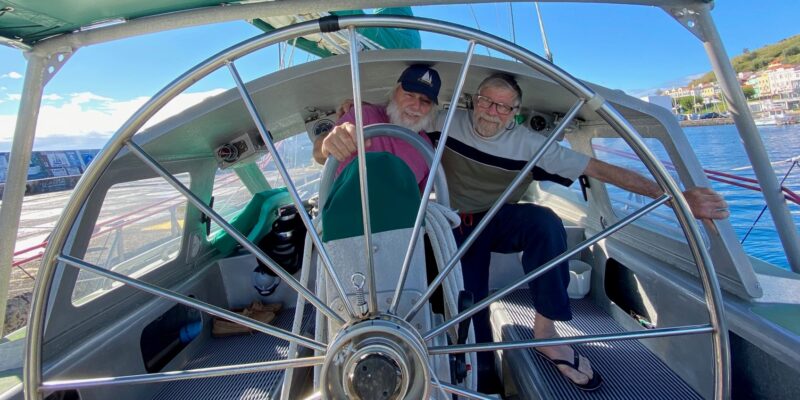
Afterthoughts
Peter is an individual full of thoughts on a wealth of topics. While I feel the Northwest passage is Canadian waters, other governments do not agree and the following article seems to discuss a possible strategy for protecting this waterway from foreign influences. Peter also had many tips and tricks on how to anchor in difficult locations or how to be prepared for survival situations at sea. His use of old nautical terms was also enlightening. Back home there is a music venue galled fiddler’s green, which seemed like a perfectly named grassy knoll to watch music, however I was unaware of that it is an afterlife for sailors who have spent more than 50 years at sea where music always plays. I started sail too late to make it 50 years at sea before I’ll have to “swallow the anchor” or give up a life at sea.
One other comment from Peter I’ve been researching more thoroughly is the impact of modern day batteries. Cell phones and the access to information they enable are freeing the minds of people around the world, but at what cost? Both lithium and cobalt mining are providing economic opportunities to some of the worlds poorest countries but at what cost to the planet? Can we mitigate the impact of the environmental cost of batteries by recycling? A former Tesla executive has former a start-up called Redwood Materials and has started a battery recycling facility in Nevada. Perhaps humans will be able to extend their time before extinction using innovative solutions.
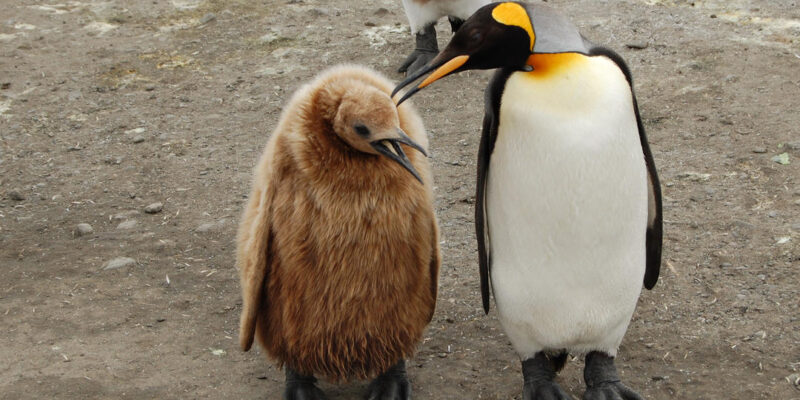
As much as I would like to end this sailors story on an upbeat note I feel it would be an injustice to the an individual who bravely sails the seas and freely shares his honest and unhindered opinion of the future of our species and the planet. Unless we dramatically change our ways I fear our species and many of the animals that live on this planet are doomed to a premature extinction. Humans will deserve this fate but our animal relatives will not. The planet will survive but will be forever changed, just like so many times in the past. The only hope is change, but if history is any indication, change wont occur until it hurts. Pain, for so many species, is the ultimate teacher.